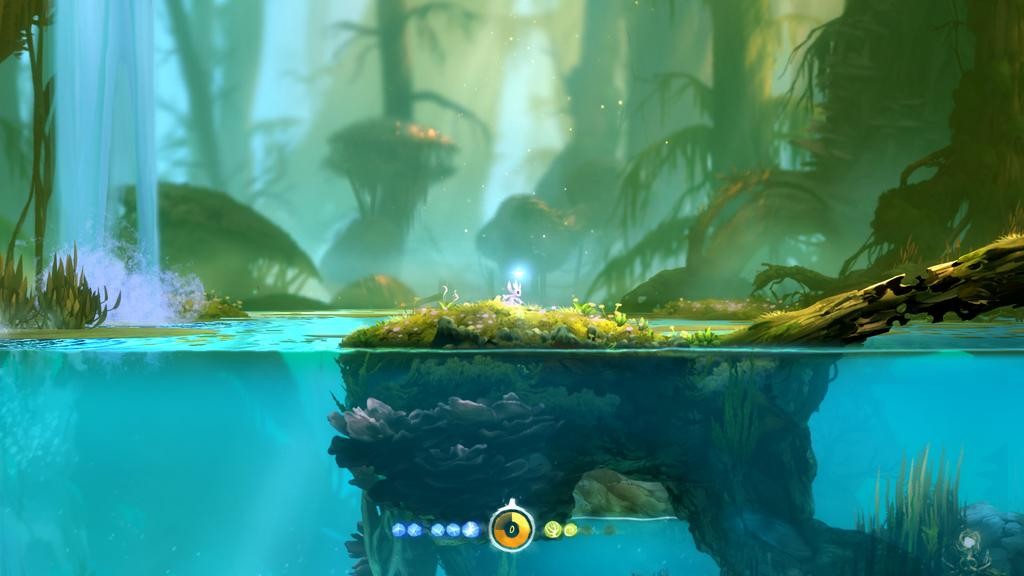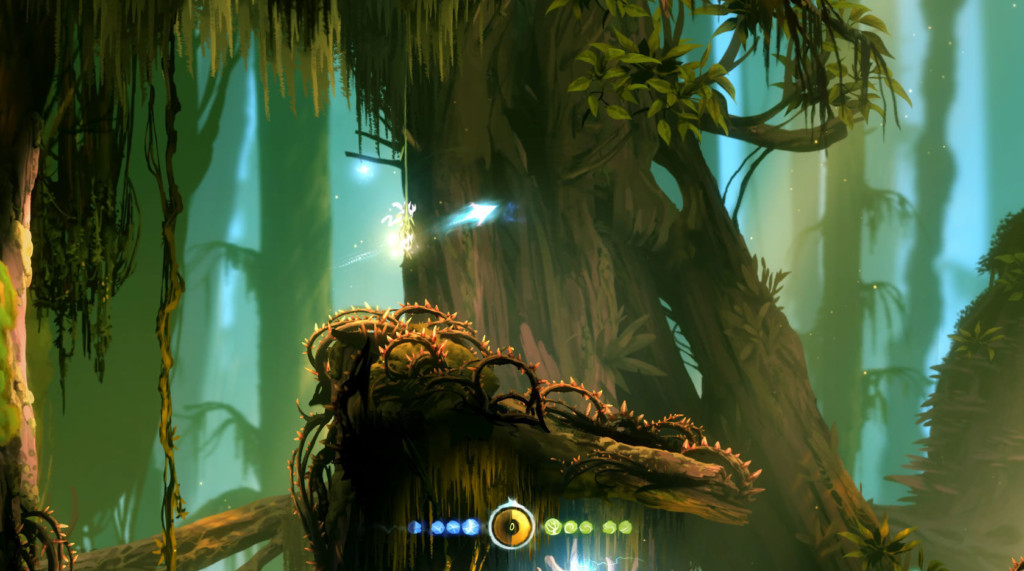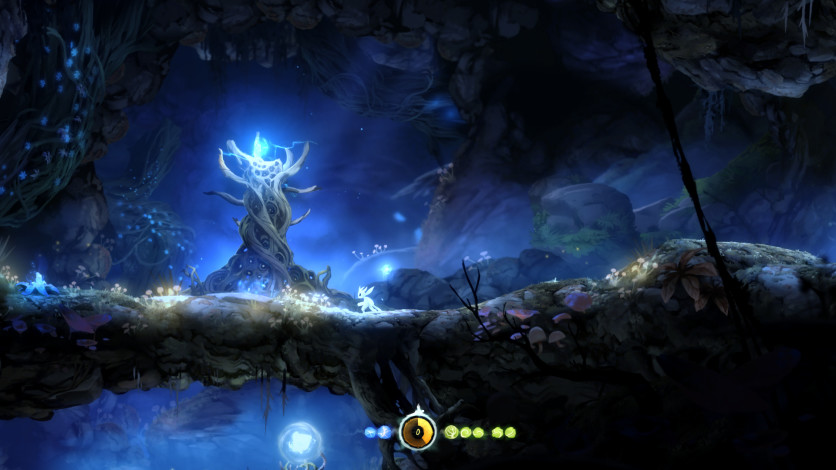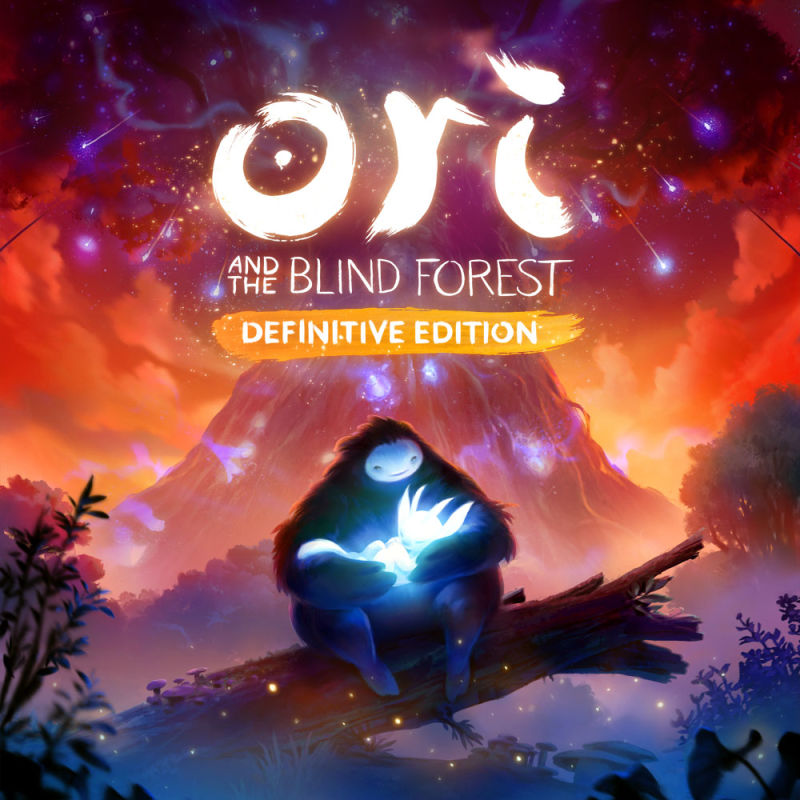Ori and the Blind Forest
Developed By: Moon Studios
Published By: Microsoft Studios
Category: Platformer
Release Date: 09.27.2019
Striking the perfect balance between aesthetic and function is one of the most difficult tasks of any designer. This is no less true for a game designer, whose work is to bring together the right artistic elements without compromising the act of playing their game. Overcommitting to one over the other puts the user experience at risk. Without engaging visuals and sound, gameplay will eventually become tedious or dull. Emphasis on graphics and music in place of gameplay, however, makes for a shallow, if not frustrating experience. Ori and the Blind Forest plays along these lines, sometimes sacrificing functional gameplay in favor of beauty, but never so much as to ruin the fun.
Originally an Xbox One and PC exclusive, Ori and the Blind Forest found its way to the Nintendo Switch four years after its initial release in part of what has been a growing partnership of cross-platform titles between Microsoft and Nintendo. Besides the high praise and favorable reviews for its art direction, I knew next to nothing about the game before playing. That said, I can’t comment too much on how it compares to the original version, but from what little I’ve read, it’s almost an identical copy. In fact, it runs better on the Switch at a full 60FPS, further demonstrating the quiet power of the hybrid console.

Indeed, optimal performance is the key to rendering Ori’s beautiful, painted world because the visual work is outstanding. The forest of Nibel is lush with detail. The team at Moon Studio must have used the full spectrum of color to breathe life into Ori’s dreamlike environments. I often found myself stopping to admire the soft glow emitting between rocks in the Moon Grotto or the way Ori glides through open water. The animations are fluid and encompass a range from spectacular to deftly subtle.
Each of Ori’s gorgeously crafted environments are sewn together by a narrative that, while not particularly original, is nonetheless heartwarming. There is tragedy in the opening sequences, leaving Ori on his own to save what’s left of the dying forest. Narrated in a mystical language by a wise Spirit Tree, the story explores themes of motherhood and compassion without ever going too deeply into either. Although sweet, I never found the plot compelling, but I understand a game that nurtures such a childlike magic in its world doesn’t need too complicated an explanation about why we’re in it.
Instead, the storytelling is supplemented by a powerful OST that does all the talking. Composed by Gareth Coker, the orchestral score could sell the game by itself. Like the selection of its levels, the music varies in ambience and mood depending on the atmosphere. Sequences of action and escape propel forth with the sweeping movements of a full band, while the slower moments of the Misty Woods are accompanied by an enchanted, dissonant piano. Xylophones in the background grant the world a sense of ancient magic; the cellos the depth of loss. Each arrangement is neatly organized to follow the collapse of forsaken ruins or light that splits the sky. From beginning to end, the music in Ori and the Blind Forest stands next to the quality of its graphics as its strongest feature.

However, all of this is to say very little of how the game plays. Ori and the Blind Forest is at its heart a platformer, with light rpg and Metroidvania mechanics sprinkled within. Ori has a range of movements that catapult him over and though various obstacles including a double jump, wall climb, and the ability to project himself in any direction off an enemy. I’d be hard pressed to say there’s combat in the game, as what constitutes fighting is simply button mashing so Ori’s Navi-like parter, Sein, can fire little blue flames to destroy enemies and obstacles. There are also upgrades which you can select from a skill tree to increase the power of pick ups and attacks. These are earned through experience from defeating enemies. Other upgrades like additions to health and energy cells (which are used to create “soul links,” i.e. quick saves) are hidden throughout Nibel. Ori and the Blind Forest is a Metroidvania in spirit more than practice as it remains fairly linear, with backtracking for new abilities optional in some cases. I finished the game without the dash ability. Perhaps finding it would’ve reduced the challenge in the end, but I finished it all the same.
In fact, the challenge Ori and the Blind Forest poses is where I’m the most critical. For a game that values so much in presentation, especially in your ability to freely and acrobatically traverse through its stunning environments, it hamstrings its own purpose through a series of difficult trial and error sequences that slow play down. I died what felt like a hundred cheap deaths in one part where I was chased by the antagonist, Kuro, with no means to escape except by the alternative use of an ability I hadn’t used since much earlier in the game. Acquisition of other abilities felt out of order or their purpose under-explained, like the air dash upgrade I purchased without knowing I couldn’t use it without dash, an ability I never found on the main quest path. It’s a minor complaint, but it mars an otherwise perfect game with uneven difficulty and faulty rewards system.

Thankfully, to offset some of the more infuriating platforming sequences is a very forgiving save system where, with enough energy cells, you can make a checkpoint just about anywhere. This made most frustrations short-lived and contained to small areas, so I didn’t need to trek too far to make up lost ground. Still, some of the later challenges frustrated me a bit too much and I was relieved to be done with them when the credits rolled. By this point the number of recorded deaths just served as insult to injury, rather than a mark for improvement on my next play-through.
Gameplay hiccups aside, Ori and the Blind Forest is an achievement. For the first time ever with the Switch, we’re able to take this high-water mark in clever, gorgeously rendered platforming on the go. Although occasionally favoring style over substance, Moon Studios has set the bar high in terms of presentation with the beauty and sound of Ori. Four years later and we’ve only begun to see its influence on games as an art form.






Buy Ori and the Blind Forest: Definitive Edition
$19.99

Follow Moon Studios
[Review] Backpack Hero – Nintendo Switch

Developed By: Jaspel Published By: Different Tales Category: Role-Playing, Simulation…







